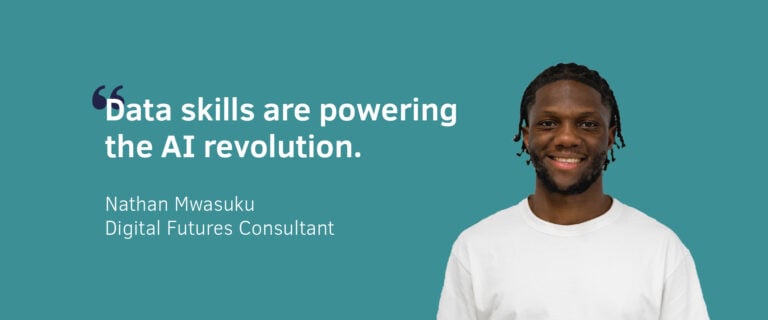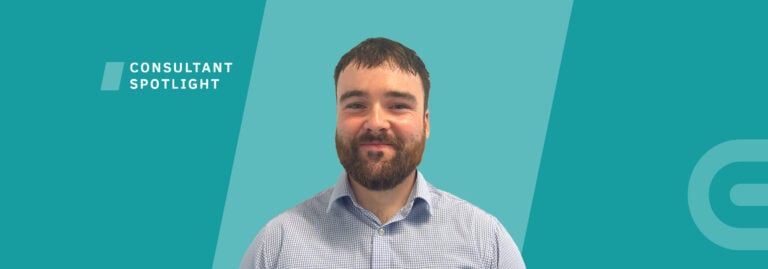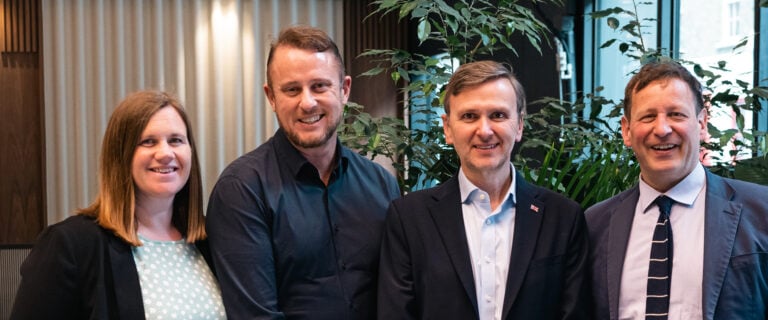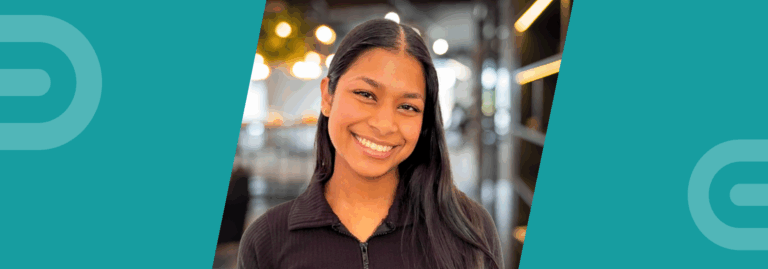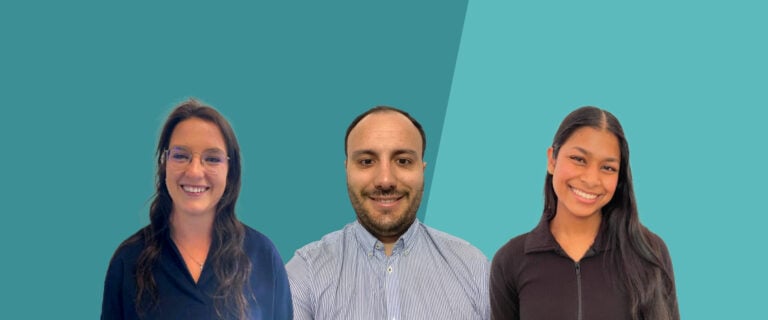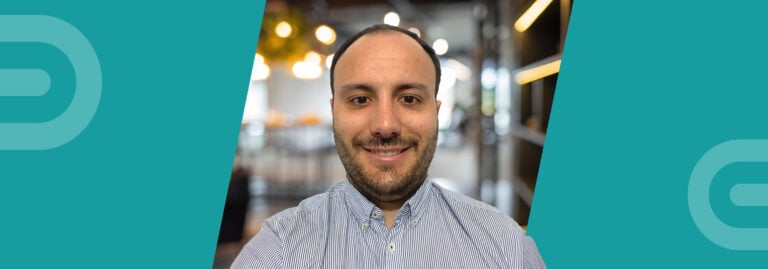
My name is Deryn, and I’m a product owner at a large multinational media company. I wasn’t always a product owner; in fact, quite recently, I made quite the career switch from freelance musician to software engineer. If you had told me five years ago that I’d be doing this now, I’d have suggested you had me confused for someone else. While I have always maintained a keen interest in technology and computer literacy, it never occurred to me until 2022 that I might try software development as a professional career.
“Being in my mid-forties felt like a formidable barrier to entry.”
Just over two years of Covid had made quite a devastating impact on my music career – nothing unusual at the time. It also gave me unexpected time and space to consider my future and ask myself whether I actually wanted to continue with music until I reached retirement age.
After much soul searching, I began exploring several different avenues to which I thought I may be well-suited. Being in my mid-forties felt like a formidable barrier to entry. I was not in a position to go back to university and spend 3 years accumulating an enormous debt to acquire a new qualification, followed by an unknown duration of job-hunting. Graduate roles, although very seldom explicitly for young adults fresh out of university, all felt implicitly reserved for that demographic.
I was beginning to rethink my crazy career change idea, when I came across a postgraduate degree apprenticeship aimed at anyone, of any age with a passion for technology, a creative approach to problem solving and a degree in any discipline. It sounded perfect, so I applied. I made it past the first 3 rounds of online interviews and aptitude tests, and attended the final stage, which was an assessment day. I wasn’t offered a place, but I was hooked. I knew this was what I wanted to do, and it felt like an industry very eager to open up and be actively inclusive.

A few months later I came across an advert posted by Digital Futures. Rather than a 2-year apprenticeship, this was a 3-month intensive training course leading to the opportunity to be placed with one of their many clients. I applied, I was accepted, and I haven’t looked back.
The 3 months at the Academy (all conducted remotely from the comfort and convenience of my home office) went by in a blur. It requires students to be extremely focused, able to absorb big chunks of brand-new information, and apply that information in ongoing tasks and projects. The quality and delivery of course content was consistently good, and I really valued the opportunity to meet and get to know such a diverse range of people from so many different walks of life. This diversity is at the very core of Digital Futures’ values and is another shining example of how the tech industry is coming out of hiding and opening up to anyone with the aptitude to be there.
“I really valued the opportunity to meet and get to know such a diverse range of people from so many different walks of life.”
I was extremely fortunate to be selected for a placement interview soon after completing the course, and even more fortunate to find that the company was a perfect cultural fit for me. I was placed in a team with four fellow Academy graduates, and we were given a Greenfield project which involved building a dashboard to check the health status of some of the Identity systems. It was an excellent way to learn about the systems we were going to be working on further down the line.
My job title – Test Automation Engineer – by no means limited me to working exclusively on testing frameworks and quality assurance. We all got stuck into every aspect of the project. Subsequent projects included building a mobile app for a corporate event from scratch, followed by a research and development app to demonstrate upcoming features and improvements to existing user journeys.
Towards the end of 2023, I was offered the opportunity to become the product owner on the Research and Development project, and although I had some misgivings – especially about leaving coding behind – I decided it would be a good thing to try for at least the next 3 months. Nearly 6 months later, I am still in the product role, and I absolutely love it. I do miss coding, but I make time outside of work to keep my skills going. Working in product has given me a completely different perspective on the business, and involves just as much problem solving, only now the focus is more on what and why as opposed to how.
One of the main takeaways from this exciting rollercoaster I’m on, is to avoid becoming fixated on being one thing. I had to let go of that mindset in order to commit myself to a career change, and again when I was offered the Product Owner role. After all, the world of technology is defined by constant change, so be ready to embrace it.

If you’re taking your first steps in the world of tech and coding, here are three helpful resources that I found helpful in my own journey:
1. Codecademy
Codecademy is a library of coding and technology courses aimed at straight beginners and novice coders. The content strikes a good balance between theoretical material, coding with instructions, and coding alone (or with hints if you get stuck).
2. Codewars
Codewars is all about getting hands-on with the code you’re learning. Once you’ve cracked it and your code passes all the tests, you can look at other members’ solutions, compare them with your own, and get involved in discussions. It’s a fantastic way to improve your coding skills and meet like-minded people.
3. Udemy
Udemy is a vast video tutorial platform, with coding courses making up a pretty big portion of the overall content. There is a small amount of free content, but most of these courses are behind a paywall – either subscription or on a per-course basis. It’s worth keeping an eye open for site-wide discounts, which often bring course prices down as much as £60 to as little as £12.
If you’re interested in changing your career, sign up to our mailing list for our next application window here.

